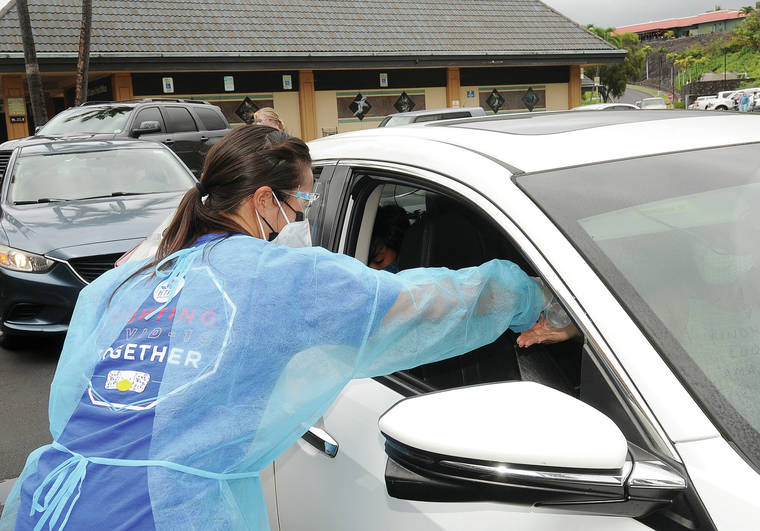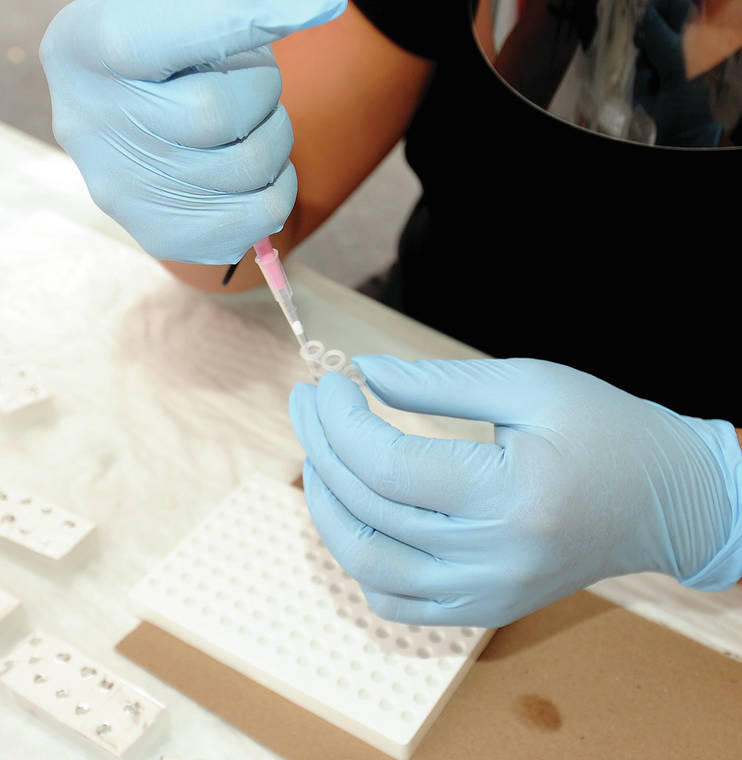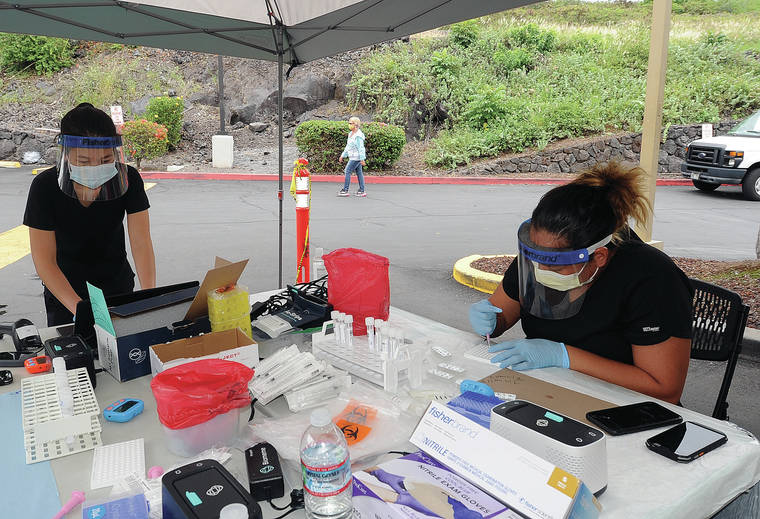Testing rises with demand as COVID cases pile up
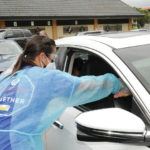
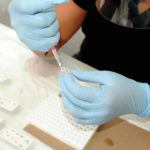
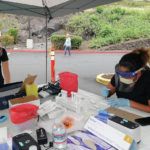
The demand for COVID-19 testing on the Big Island is rising as case numbers continue to surge.
About 100 people showed up Friday when KTA Superstores pharmacy held a testing event at the Keauhou Shopping center.
“We are doing this for the Department of Health to help with surge testing,” said Kerri Okamura, Director of Pharmacy Operations.
The pharmacy partnered with Capture Diagnostics to perform the PCR test, with additional support from the National Kidney Foundation and Roberts Hawaii for the drive-through testing. Results were expected to be available within 24 hours.
Okamura encouraged more people to get tested.
“The numbers are scary,” she said of the recent surge of positive cases. “The more we can catch early, the more we can catch the spread.”
She said they plan on continuing weekly testing at select store locations around the island, however the schedule has not yet been set.
“Please get vaccinated,” she advised. “Continue to be cautious, wear your mask and avoid large gatherings. Kids under 12 can’t get vaccinated, so everyone else needs to.”
Jason Dela Cruz, DOH Acting District Health Officer said testing is a strategy to identify COVID and it is known that is one of the hallmarks in making sure people know their status.
“Some of the impetus for this testing was based on a funding source that dropped into our lap about a week ago from FEMA to expand testing,” he said. “We didn’t have much time to work on this. Luckily KTA had been staging itself as a testing provider, pilot testing during the summer, so they were structured to take this on.”
Dela Cruz said the funding came through at an opportune time.
“We expect more people to want to access this especially if they aren’t going to go to their provider or an Urgent Care,” he said, adding this service will augment the county’s testing events at the Kona Aquatics Center and Afook Chinen Civic Auditorium in Hilo.
Dela Cruz said they are seeing a sizable portion of positive cases in unvaccinated people, particularly households.
“So if one person is unvaccinated it is likely the rest of the household is not either. Once this particular variant (Delta) gets into that household, it burns quick and it burns big,” he said.
The positivity rate on the island has never been higher, but Dela Cruz said it is not an absolute number because it only represents those getting tested.
“There is underreporting from people not getting tested that are keeping our transmissions up,” he said. “Unfortunately with this one, it’s going to burn quick.”
Dela Cruz said the latest CDC guidance is a recommendation that even if you are vaccinated, you may want to get tested three to five days after exposure to a positive person.
“Even if someone is vaccinated and are exposed, we are not going to put them into quarantine because the majority of the time the vaccine is working. We are seeing breakthrough cases, it is a very small percentage but it is still possible. That person should be able to go to work or school without restrictions if they are not showing signs or symptoms,” he said.
Contract tracing for individuals testing positive has taken on a priority status with case counts reaching 100 per day.
“When we get to this point, there is a ceiling on what we can do with contract tracing. We have to prioritize including hospitals, long term care facilities and schools,” Dela Cruz said. “If we see clusters emerging from schools or school based activities, that’s going to be a priority too. Our other priority is with specific populations that have been disproportionately affected by COVID-19 such as a portion of our Hawaiian and Pacific Island population are overrepresented in the data.”
Because of the amount of cases they are seeing right now when someone gets a positive result, DOH will ask the individual to call their close contacts and tell them what’s going on.
Dela Cruz warned there is no reason to think we are at the peak or plateauing.
“It has been a linear growth compounding day to day,” he said. “We have not squandered the last six or seven months here on the Big Island waiting for this. We have had aggressive vaccination campaigns that have unfortunately plateaued and as a result a good portion of our community hopefully will not be affected by this as much, but these unvaccinated pockets, especially those of a younger age, it’s a completely different story.”
Dela Cruz emphasized this is still a great time for people to get vaccinated.
“They have this within their ability to make a tangible difference both for themselves and their family and the community,” he said. “Test, vaccinate, mask, and stay home if you are sick.”

